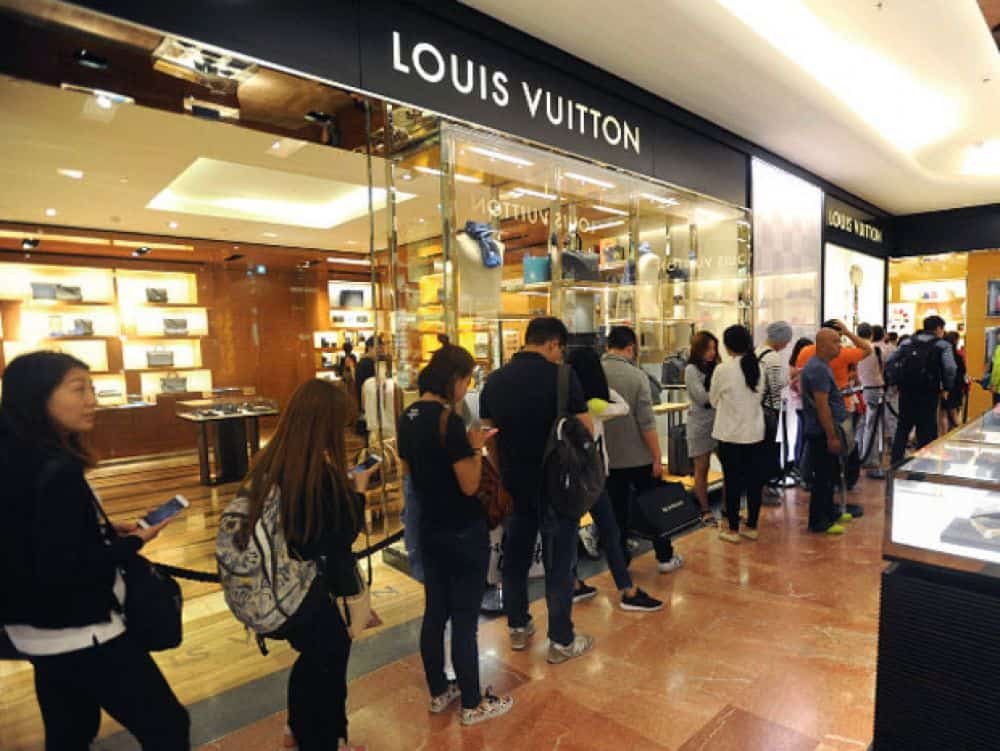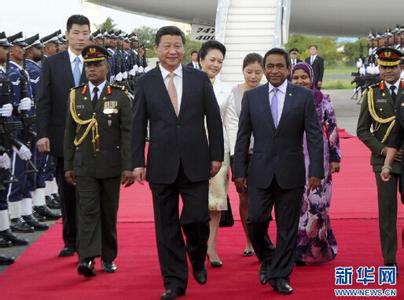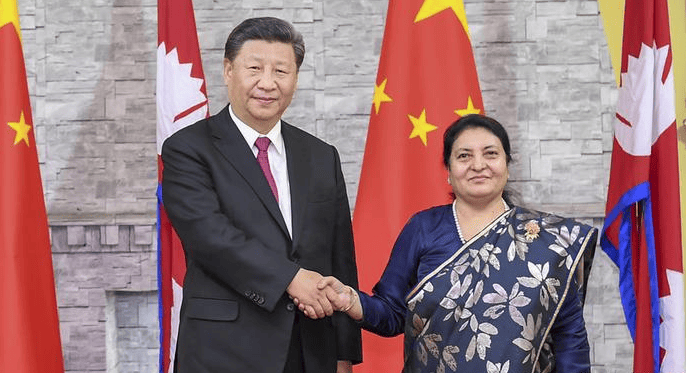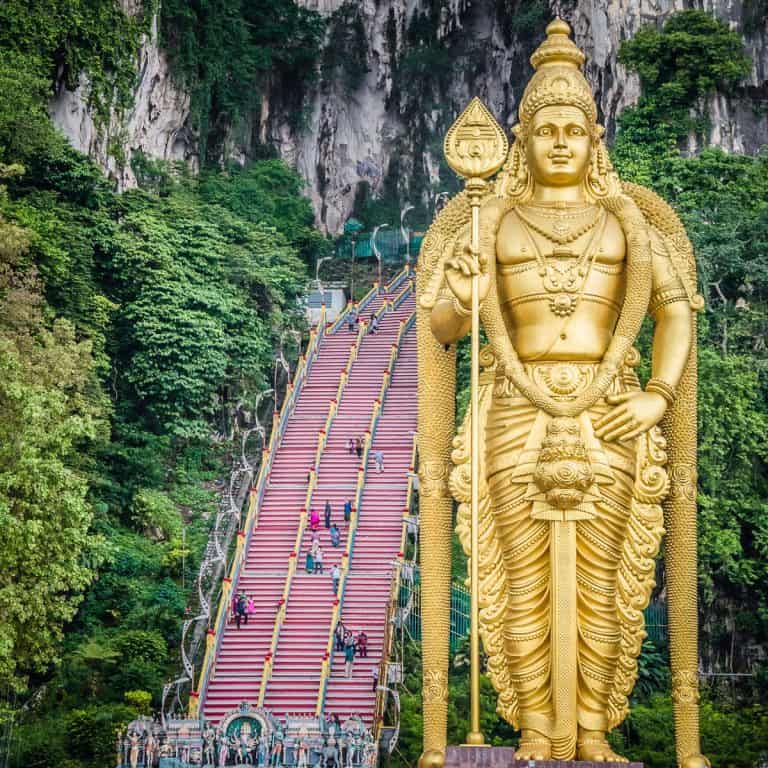Chinese Tourists Shopping: Key Habits To Understand
Navigating the shopping tendencies of Chinese tourists can feel like trying to solve an intricate maze for many marketers. Trust me, I’ve walked that labyrinth too. It turns out these savvy travelers cherish unique experiences ripe for social media sharing above just typical retail indulgence.
In this blog post, we’re going to gently pull back the curtains on their shopping behavior and strategize how best to cater to them effectively. So, are you ready to crack the code?
Key Takeaways
- Chinese tourists have unique shopping habits characterized by their preference for global brands, emphasis on value in marketing, and diverse retail channel choices.
- Understanding the age and income segments of Chinese tourists is crucial for a targeted marketing strategy as a significant number of them are young with good purchasing power.
- Luxury shopping opportunities, creating a Chinese-friendly shopping experience, and utilizing digital marketing strategies are important to attract and cater to the needs of Chinese tourists.
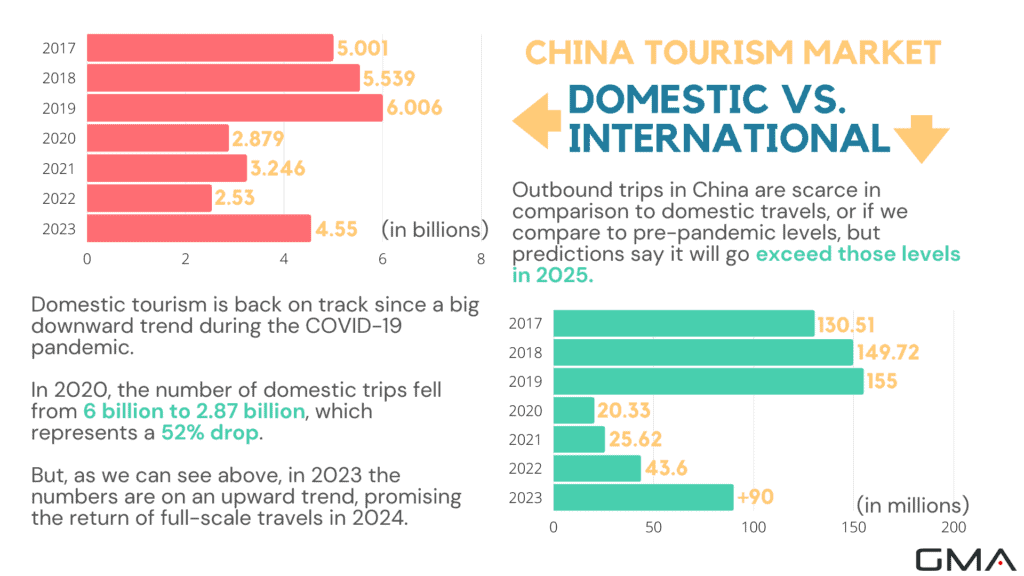
Unique Characteristics of Chinese Tourists’ Shopping Habits
Chinese tourists have unique shopping habits characterized by their preference for global brands, emphasis on value in marketing, and diverse retail channel choices.
Shopping Culture in China
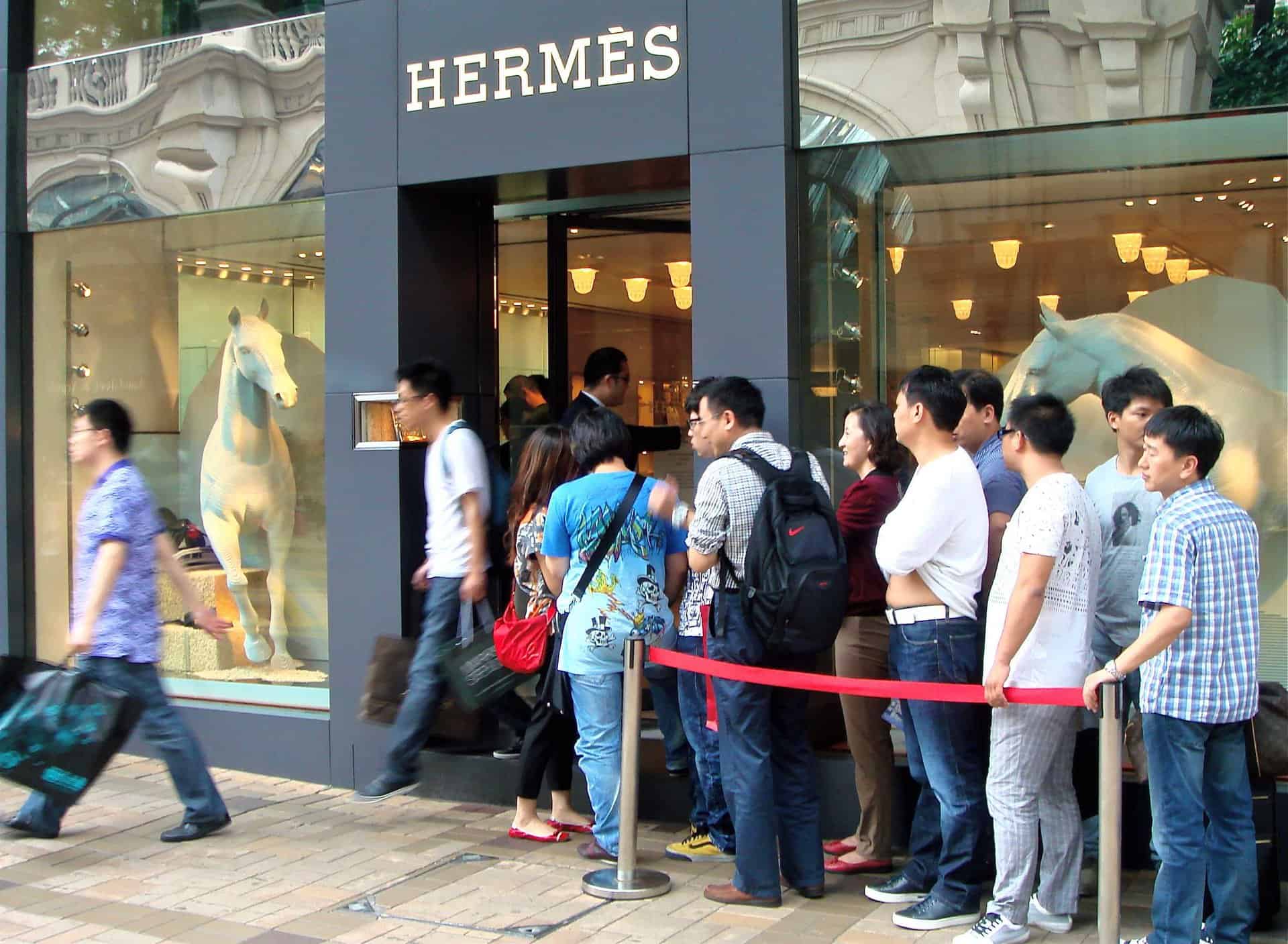
Gift culture is important in China, way more important than in Europe. After a trip abroad, you have to bring souvenirs and gifts to everyone around you. It is now common, when your friends know you will soon travel abroad, that they ask you (and more enjoining than asking) to bring back a Louis Vuitton bag for your boss, a watch for one’s uncle, or a Lancôme mascara for one’s mother. They might transfer you the money in advance per Alipay and WeChat, but that’s another topic.
Most Chinese tourists come back from holidays with two or three suitcases full of relative’s orders. This shopping culture is deeply rooted in the Chinese way of life and delights luxury brands.
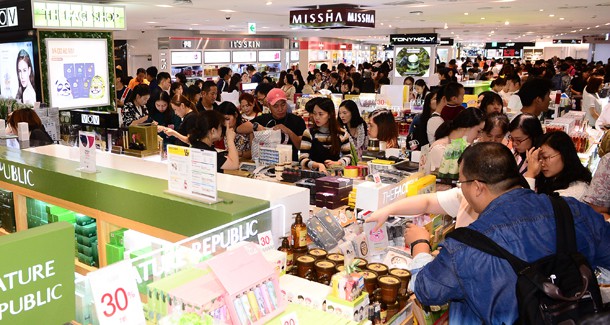
Product Variety
Chinese tourists like many different things. They buy a lot of products when they shop. As they get more money, they can buy more kinds of things. They love to travel and shop in new places.
This shows that they want different types of shopping trips. When buying online, the kind of product matters a lot to them, as does who is selling it. They also enjoy items made locally.
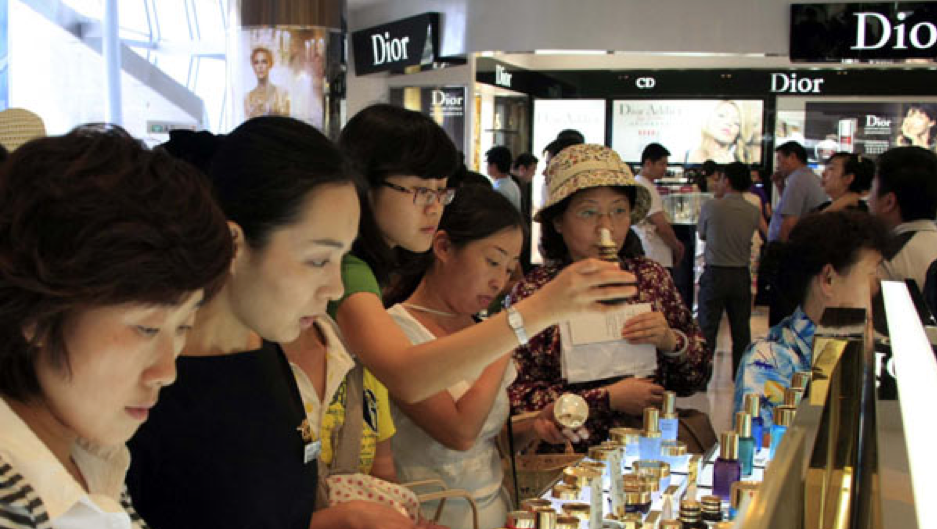
When traveling, they are interested in purchasing souvenirs, but they usually check what specific countries or regions are known for, and will look for those products. When it comes to luxury spending, they often prefer to buy products in their country of origin. This is why they often come back with many cosmetics from France or luxury bags and shoes when traveling around Italy.
Preference for Global Brands
Mainland Chinese tourists like world-known brands, especially when it comes to luxury companies. They see them as high quality and value for money. This is part of their overseas luxury shopping habits. They would rather buy a pricey item from a global brand than go for cheaper local products.
Big-name brands draw Chinese consumers like bees to honey. The luxury, the prestige, it all counts when they shop. So if you want to tap into this market, think about adding well-loved brands to your store.
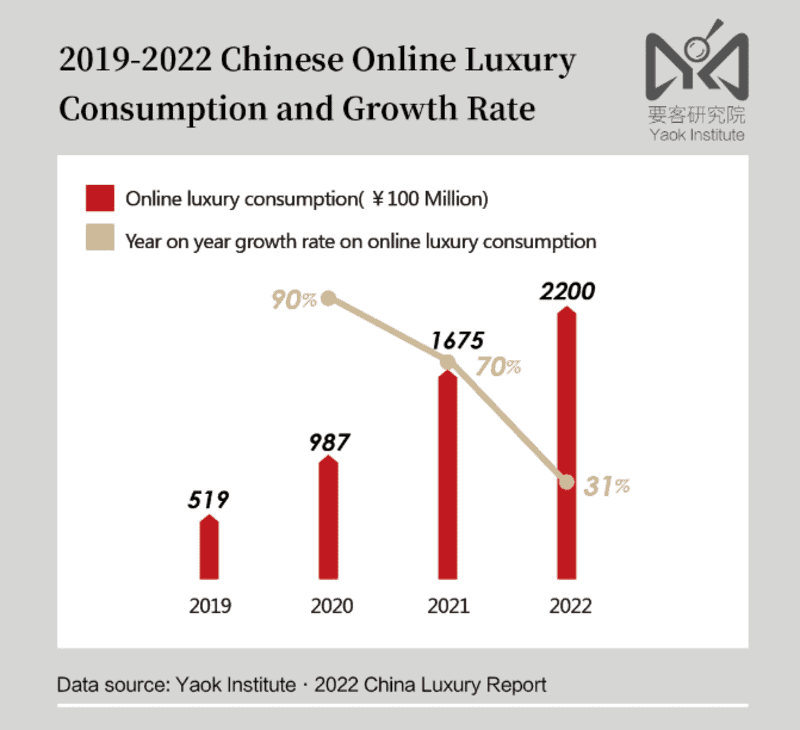
Emphasis on Value in Marketing
Chinese tourists love to shop. But they do not buy just anything. They look for things that have real value. This means a good price and top quality.
How can we sell more to them? We must show the value of what we sell. Use clear words and pictures to show how great our things are. And offer fair prices that make them feel smart for buying from us.
If we do this right, Chinese tourists will want to buy even more!
Retail Channels
Chinese tourists are known for being “omnichannel” shoppers, which means they use a variety of retail channels when shopping. They don’t limit themselves to just one option – they enjoy exploring different avenues to find the products they want.
This can include buying from physical stores, online platforms, or even through social media channels. As a marketing manager, it’s important to understand this behavior and cater to their preferences by providing seamless experiences across all these channels.
By offering multichannel options, you can increase customer satisfaction and encourage brand loyalty among Chinese tourists. Additionally, with international travel restrictions in place recently, Chinese tourists are expected to shop more within their own country.
What Kind of Products Are They Buying?
Their shopping habits reflect a combination of seeking high-quality goods, brand prestige, cultural curiosity, and sometimes, products that are difficult or more expensive to obtain in China. Here are some of the popular categories of products that Chinese tourists typically purchase while abroad:
- Luxury Goods: Chinese tourists often buy luxury brands abroad because of the perceived authenticity, broader selection, and sometimes lower prices due to tax refunds or regional pricing. This includes luxury handbags, watches, clothing, shoes, and jewelry.
- Cosmetics & Skincare: Chinese tourists are fond of purchasing foreign beauty and skincare products, especially from brands that might not be available in China or are believed to be of higher quality or more genuine when bought from their country of origin.
- Electronics: Certain electronics, especially those from brands like Apple or high-end camera brands, can be cheaper abroad, especially when factoring in tax returns.
- Health and Wellness Products: Dietary supplements, vitamins, organic and natural products, and health foods from countries with a reputation for high-quality standards (like Australia and New Zealand) are particularly popular.
- Local Souvenirs & Handicrafts: Tourists worldwide, including the Chinese, enjoy buying unique artifacts, handicrafts, or items that represent the culture or heritage of the place they’re visiting.
- Wine & Spirits: Chinese tourists often buy wines, especially from renowned wine regions like Bordeaux in France or Barossa Valley in Australia. Spirits, such as whiskey from Scotland or sake from Japan, are also sought after.
- Duty-Free Products: Airports and duty-free shops are hotspots for Chinese tourists, where they can get perfumes, cosmetics, chocolates, and other goods at tax-free prices.
- Baby Products: Given concerns in the past about product safety in China, many Chinese tourists buy baby products, such as infant formula, abroad where they believe the quality control might be stricter.
- Fashion and Apparel: This includes not just luxury fashion, but also unique or niche clothing and accessory brands that might not be available in China.
- Food Delicacies: Chinese tourists often purchase local specialties, chocolates, candies, and other unique food products to bring back home as gifts.
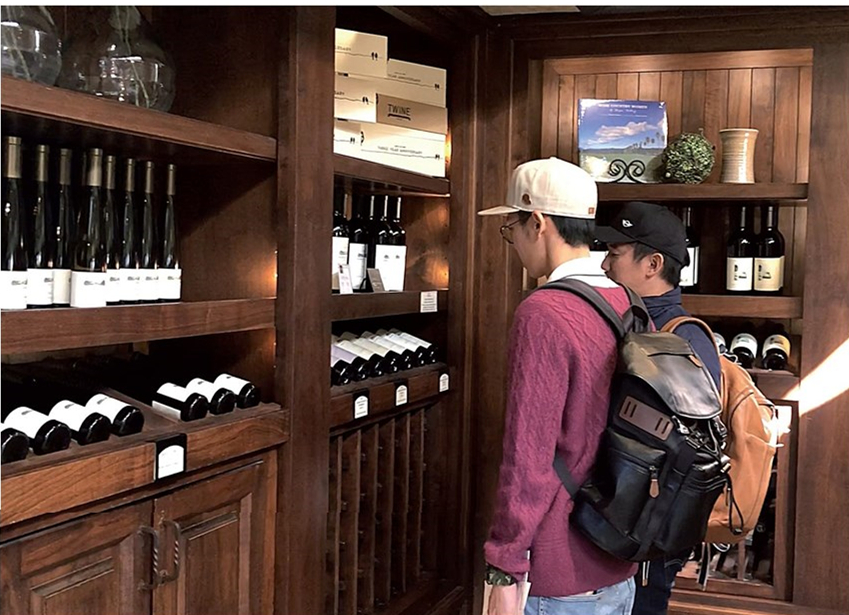
Why do Chinese Travelers Like to Shop at The Airport and on Planes?
Items sold at the airport present a significant advantage: they are zero-rated. Chinese tourists buy at the airport where the price is free of taxes, rather than in their own country where luxury goods are sold at a higher rate of 30%.
Chinese travelers, while sitting in the plane, will not just look through the window and have a rest.
Instead of this, they will purchase goods. According to our case study, 35% of Chinese passengers will buy items onboard the flight, against 14% of the international passengers all countries included. 80% of our Chinese travelers are likely to use the service “fly and collect“, which consists in pre-ordering their purchases and collecting them while they are flying.
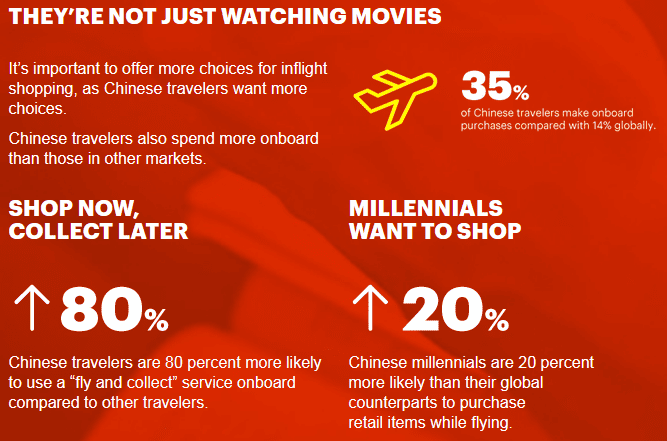
Why is it an advantageous service? Because they will benefit from promotional prices through it. They will save time and money, two things that matter to busy Chinese customers.
It is therefore necessary to offer more choices of items during the flight, as they could definitely buy more if they had enough options for their shopping.
Chinese Tourist Demographic
Chinese tourists have unique characteristics when it comes to their shopping habits and understanding their demographic can help businesses cater to their needs more effectively. Read on to learn more about the age, income, and purpose of travel for Chinese tourists, as well as popular shopping destinations.
Age and Income
Chinese consumers typically develop their shopping habits in their youth and these often persist into adulthood. Hence, marketers need to consider both age and purchasing power in their strategies.
A significant number of Chinese tourists are youthful and possess good purchasing power. This can be attributed to increased wealth among this demographic. For instance, those aged 25 to 40, are more likely to have a medium to high income level.
There is also an increasing amount of Chinese seniors traveling in small groups or with family. They spend more than other groups and are looking for great cultural experiences, they are also not saving on souvenirs and local products.
There is also a group of Chinese luxury shoppers, that love to purchase luxury products in the countries of their origin. Those cannot be overlooked by luxury firms, as they expect unique treatment and personalized shopping experiences.
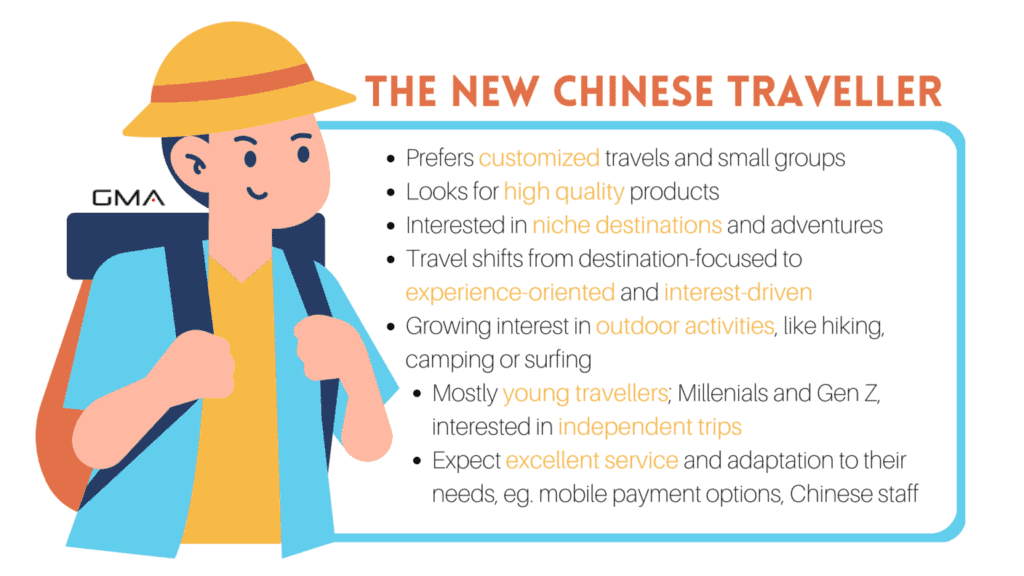
Purpose of Travel
When Chinese tourists travel, their purpose is shifting towards experiential and independent travel rather than solely focusing on shopping. Younger and more experienced travelers, especially millennials, are prioritizing unique experiences over buying souvenirs.
They want to explore unfamiliar destinations and create memories through activities like adventure sports or cultural exchanges. These travelers seek inspiration from stories, movies, or songs that they are familiar with when choosing their destinations.
Shopping is no longer the primary motivation for Chinese tourists; instead, they value personal growth and creating meaningful connections during their travels.
Popular Shopping Destinations
Based on my research, Hong Kong and Macau are currently the top choices for Chinese tourists when it comes to shopping. These two destinations offer a wide range of products and brands that cater to Chinese shoppers’ preferences.
Additionally, their proximity to mainland China and the shared language make them even more appealing for Chinese tourists looking for a convenient and enjoyable shopping experience. Knowing these popular shopping destinations can help us tailor our marketing efforts and strategies to attract more Chinese tourists to our business.
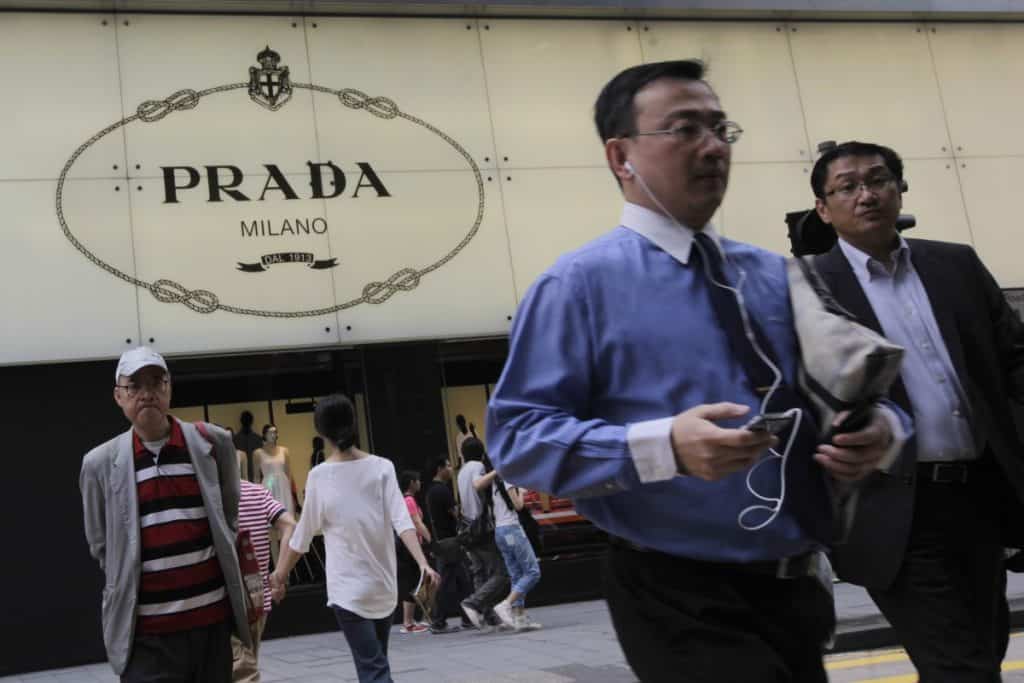
Catering to Chinese Tourists’ Shopping Needs
Luxury shopping opportunities should be provided to cater to the preferences of Chinese tourists, who often have a high purchasing power and seek unique experiences during their travels.
Luxury Shopping Opportunities
Chinese tourists have a significant impact on the luxury retail sector. They prefer purchasing authentic luxury goods abroad to ensure quality and enjoy tax savings. To attract these affluent travelers, it’s crucial to provide them with luxury shopping options that meet their preferences.
Here is a report on spending on luxury shopping overseas domestically and internationally:
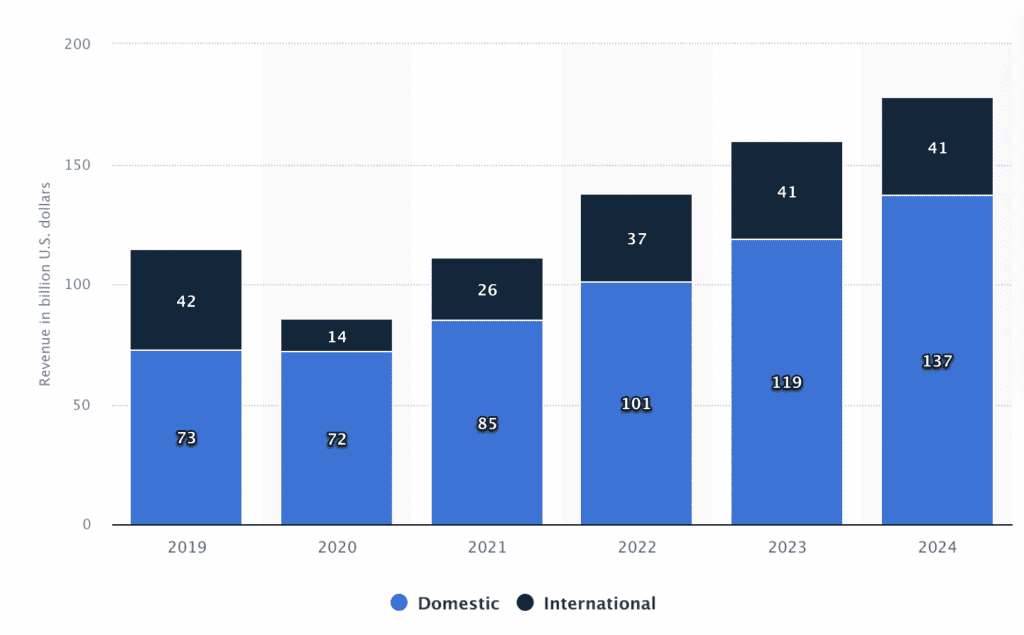
One key opportunity is offering duty-free shopping experiences. Chinese tourists often choose duty-free department stores for their luxury purchases. By partnering with these stores or creating your own duty-free sections, you can cater to their needs and capture their attention.
Additionally, establishing partnerships with popular international brand boutiques can also be beneficial. It’s worth noting that only 1% of affluent Chinese travelers buy from brand boutiques while traveling overseas due to various reasons including price concerns and lack of access in China; however, this presents an opportunity for your business to stand out by providing exclusive access or special promotions tailored specifically for these shoppers.
Lastly, digital marketing plays a vital role in attracting Chinese tourists seeking luxury shopping experiences. Utilize social media platforms such as WeChat and Weibo to engage with potential customers before they even arrive at your location.
Creating a Chinese-Friendly Shopping Experience
To cater to the needs of Chinese tourists, it is important to create a shopping experience that is friendly and welcoming. One way to do this is by understanding their preferences and providing products that they are interested in.
Chinese consumers often look for luxury brands and high-quality products when they shop abroad. By offering a wide range of products from global brands, you can attract Chinese tourists and meet their expectations.
Additionally, it’s important to ensure that your store has a welcoming atmosphere and provides good customer service. Chinese tourists appreciate personalized experiences, so offering assistance in Mandarin or having staff members who understand Chinese culture can make them feel more comfortable.
Finally, embracing digital marketing strategies can be highly effective when targeting Chinese tourists. Many use mobile payment apps like Alipay or WeChat Pay, so accepting these forms of payment can enhance their shopping experience.
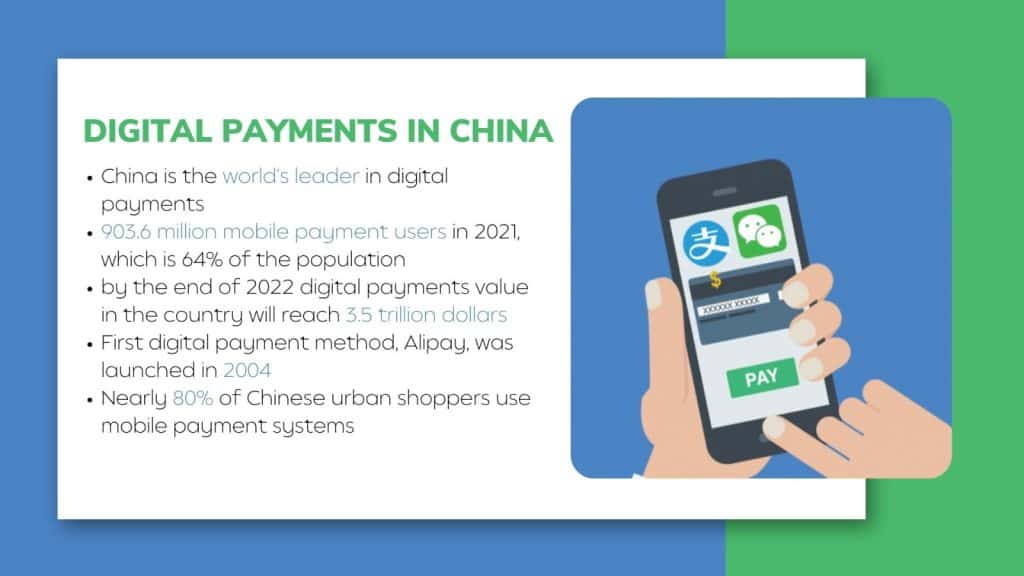
Importance of Digital Marketing
Digital marketing is incredibly important when it comes to catering to the shopping needs of Chinese tourists. To effectively market to them, businesses should implement a multichannel strategy that includes China’s major social media platforms.
Understanding these platforms and how digital marketing works in China is crucial for success. The Chinese tourism market is a significant sector for international businesses, and recognizing the significance of Chinese social media and digital marketing is vital.
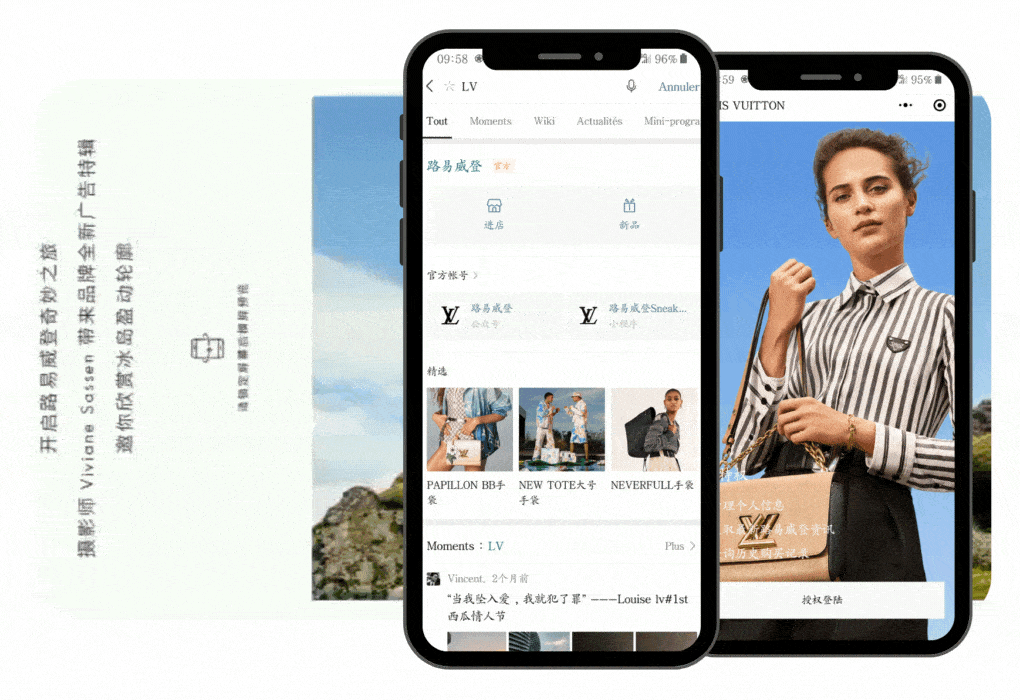
By taking into account their customer journey and considering their specific preferences and tastes, businesses can create targeted campaigns that resonate with Chinese tourists. With shopping being one of their top activities when traveling abroad, it’s essential to use online advertising and meet the unique requirements of these travelers through effective digital marketing strategies.
Unlock the Chinese Tourist Market with Gentlemen Marketing Agency
Chinese tourists are renowned for their shopping enthusiasm, and understanding their habits is crucial for businesses aiming to attract this lucrative segment. At Gentlemen Marketing Agency, we’re here to help you tap into this market, offering comprehensive solutions tailored to your needs.

Why Choose Us?
- Deep Insights: We possess a profound understanding of Chinese tourists’ shopping habits, preferences, and patterns, ensuring you’re always a step ahead.
- Tailored Strategies: Our team designs campaigns that resonate with Chinese tourists, turning insights into actionable strategies.
- Execution Excellence: We don’t just plan; we execute. With our expert team, watch your brand gain traction and drive sales in the Chinese market.
- Cultural Expertise: Our knowledge isn’t just technical; we understand the cultural nuances that can make or break a campaign.
- Diverse Portfolio: We’ve successfully assisted numerous businesses across various sectors, ensuring their brand resonates with Chinese tourists.
With the right approach, the Chinese tourist market offers immense potential. Let’s harness it together. Dive into a partnership with Gentlemen Marketing Agency, and watch your business flourish in the world’s largest outbound tourist market.

Are you ready to take your brand to the next level? Reach out to us now, and let’s craft a success story together.

